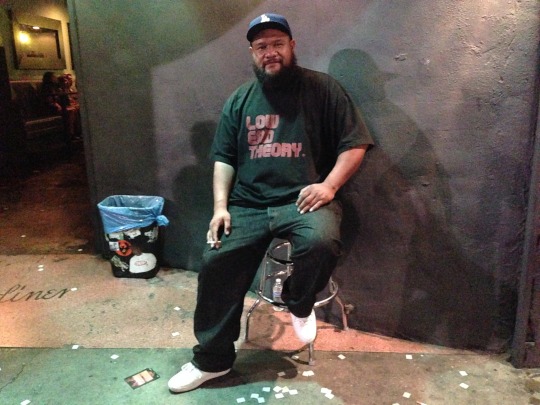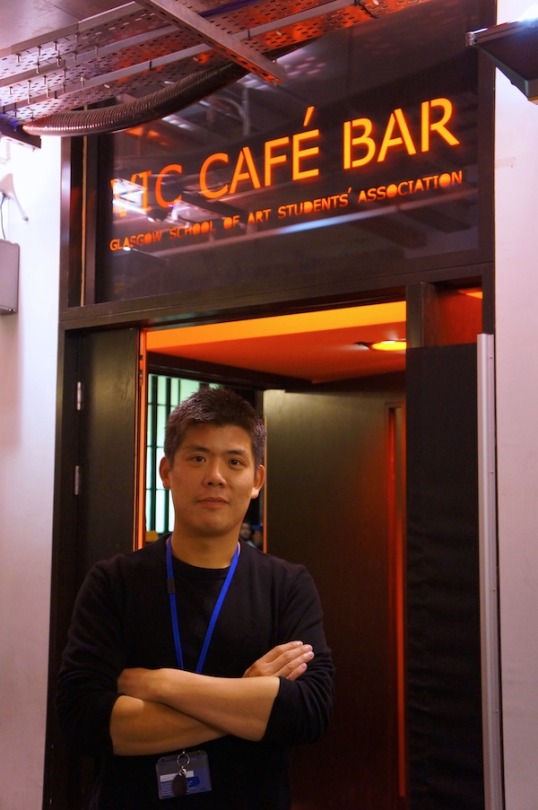#when moo young saw the murder of his father (who murdered his wife aka moo young's mom) he was in shock but then jin kang (younger) came i-
Text
im actually bawling rn
#the smile has left your eyes#AM ON THE FINALE.#he thought they were siblings because this bitch told him so . and she gave him a lot of reliable info on his past so he believed her#and then he broke up with her bc they're SIBLINGS and he suffered a lot bc he couldnttell her andhad to mask it up right#and then he went to the bitch and she tried to blackmail him#and he killedher#STILL BELIEVING THAT HE WAS SIBLINGS W/ HIS EX.#AND THEN HE IS LIKE PROSECUTED RIGHT BC HE KILLED SOMEONE VERY HIHG PROFILE.#and the girl is like fukicing DEVASTATED bc she got dumped and they had a VERY SOLID REPALTIONGHIPS and like they loved eavh other alot#AND THEN. HER BROTHER (POLICE OFFICER. ADOPTED BROTHER) TELLS THE GUY (MOO YOUNG) THAT THEY ARENT SIBLINGS#AND HE REALIZES HE RIUNED HIS LIFE BECAUSE OF A LIE#when they were little they were very close friends (moo young n jin kang) and they loved each other plaotnically and such.#when moo young saw the murder of his father (who murdered his wife aka moo young's mom) he was in shock but then jin kang (younger) came i-#-n running and she accudentally dumped a kettle of boiling water on herself#but he jumped on top of her to protecte her from getting hurt#which is why his sar is like fucking ass HUGE. and hers is just on her arm.#anyways as 30 yr olds they comparae scars and think nothing of it#NAWYAY IM HURTING VERY MUCH RN OMG#THE SMILE HAS LEFT MY EYES IM GONNA SHOOT MYSEFL
6 notes
·
View notes
Text
PERCEPTION OF DOORS

Was reminded by a conversation yesterday about the art of the club door person, and dug this out, which I wrote for the Amsterdam Dance Event annual back in 2014.
---
If you want a clear view of how clubland operates, why not ask its guardians? The men and women who stand at the doors – whether to take money, pick and choose who gets in, or act as enforcers of rules – are the first and last people clubbers will see in their night out, and are uniquely placed to assess what makes the clubbers themselves tick. They are the interface between club, clubber and promoter, and able to provide a (more-or-less) sober overview of what goes on. But frequently, too, they are the filter: they are the one person more than anyone whom by their choices, defines the nature of the crowd on a given night. As such, they are not just list-tickers, cash-till operators or hired muscle, but are a vital cog in the club's cultural machine, a part of the club's personality. And plenty of them are as big a music lovers as the promoters or DJs too. So from London to New York, Glasgow to Pretoria to L.A., we present the past, present and future of these essential sentinels and unsung heroes of the night.
BIG FRANK

Big Frank, aka Faafaga Samuelu, is a true Los Angeles legend. The imposing Samoan-American was a school friend of underground hip hop DJ/producer Kevin “Daddy Kev” Moo, and they threw parties together from Junior High onwards (“I was the muscle, he was the brain,” laughs Frank; “a perfect combination”). But Frank was also a hardcore gangbanger in his late 1980s / early 90s adolescence: “I remember him showing me a sawed-off shotgun in 8th grade while we were riding the bus to school,” says Kev, nonchalantly. Frank served serious jail time in the late 90s, but when he came out, Kev was there, happy to team up again.
Kev founded the legendary Low End Theory – hub of the psychedelic, electronic “L.A. beat scene” that spawned artists like Flying Lotus, Gaslamp Killer and co – in 2006, but by 2011 it had become so popular, hosting the likes of Thom York and Erykah Badu, that their host venue's bouncers were shaking down clubbers for bribes to get in. This was the moment when Frank's demeanour, reputation and willingness to turn up with an AR-15 assault rifle came into their own, and perhaps unsurprisingly the previous security stepped aside without any trouble to make way for him to take over on LET's Wednesday nights.
Since then, LET's reputation as a friendly spot has only grown. “Being the familiar face of the club,” says Frank, “is great fun and oftentimes just lots of funny. And if you're coming to us, you'll be more comfortable if you feel like you know the guy at the door – and a cool farewell at the end of the night helps as well!” Now in his 40s, he is happy to be a cool head, mainly in the background: “I have different reasons for being in the scene still,” he says; “What's still there is the love for music, but now my desire to be in the crowd is gone. The times of getting fucked up and bumping rap at a back yard party is long gone. What makes me happy, though, is the presence of the forty-somethings and even older folks that attend our club. It helps me feel like our push to progress the music is appreciated. As if all this time in the scene produced something that my generation can be proud of – not just slangin' and gang bangin'.”
JR

In South Africa, house music means more to people than almost anywhere else on earth. And Tebogo “JR” Modiba knows this more than most – his laid-back House 22 parties in Pretoria are an oasis of sophistication and unity in a society still riven with violence and harsh divisions. He ended up working the door there by default: “House 22 started an purely by-invite-only underground deep house joint,” he explains; “so as the founder, I had to work the door in order to overlook the invitations myself. Over time, we have opened up to the general public, but we still keep a close eye on disruptive elements who might not understand and appreciate the underground deep house culture.”
Like all the best doormen, though, he's not just there to filter people out. “The door is the most important part of the business,” he insists. “That's where punters, especially first timers, should start experiencing what the atmosphere of the club is like. All of that depends on how the doorman welcomes them and treat them.” In fact, his biggest problems are cops (“those fellas have serious anger issues, especially when they see people having fun while they are working – and they're the biggest tax collectors too, [taking money] to allow you to operate without interrupting your business with constant inspections, or to protect your patrons from being harassed”) and the weather. One time the mainly-outdoor House 22 venue was hit by tennis ball-sized hailstones, causing a near stampede for cover, which JR was able to only just keep from becoming mass panic.
All his efforts lead to a club where passion for music rules – and so it should, when JR's own love for house still drives everything. At the drop of a hat, he will reel off favourite DJs' names– Vinny Da Vinci, Christos, Glen Lewis, Jimpster, Atjazz, Ralf Gum, Andre Lodemann, Andy Compton & The Rurals, Lars Behrenroth, and Louie Vega – and those of beloved festivals that inspire him like Sónar, ADE and Southport Weekender. And you just know there's no bullshit when he says: “I don't think I am ready to live without my house music, the club life and the people I have met and we became one house music family. Not any time soon.”
JAY CLOTH

London gay scene institution Duckie is more than just a club – as “Purveyors of Progressive Working Class Entertainment”, its team have created a multi-headed beast with art events, talks and exhibitions worldwide. But Duckie's soul resides in its bacchanals every Saturday night at the Royal Vauxhall Tavern, still presided over by the same team that founded it 19 years ago: producer Simon Casson, radically eclectic DJ duo The London Readers Wifes, compere Amy Lamé and “box office artistes” Father Cloth and Jay Cloth. Jay is extraordinarily proud to be on the door - “Duckie is unlike any other London Club and IS gay culture to me,” he says, though cites inspiration from a motley lineage of misfit clubs past like The Bell, Marvellous, Daisy Chain, Lippy and anything involving cabaret monster David Hoyle (née The Divine David).
“I am very proud that Duckie is a very friendly club,” says Jay, “and the team of 'Cloths' that work the door set the tone by being as welcoming as possible to all.” As anyone who's been to the club knows, though, they may be welcoming, but you have to step up to the mark and contribute to the wild energy. Jay will turn away “stag and hen parties, anyone too obviously drunk, too obviously high, anyone rude, anyone wearing fur” and only welcome celebrity guests “as long as they are willing to pay the same as everyone else – we are very egalitarian.” “What makes me really happy,” he says, “is when the mix of people is so extreme I wouldn't want to be anywhere else on earth.” His only fear is that “around 1am some nights when the Wifes announce they are about to play their favourite record of all time, I worry the floor might give in!”
ANGELO FABARA

Anyone who thinks that garish clubwear and superstar DJ culture started with EDM should look back to early 90s New York – which truly was the best of times, and the worst of times. Clubbing was a performance then, with the self-proclaimed Club Kids creating atmospheres so decadent and sights so eye-popping that it could feel like the last days of Rome. The Limelight was the heart of all of this, and bringing some kind of order to the chaos was Angelo Fabara. Angelo was an out-of-towner, drawn as a teenager to NYC's clubs like moth to flame by the “idea of community foremost, but then the escapism it offers to young people to safely experiment with.”
He was soon part of that community. In high school he went to the Limelight every weekend, but after getting into NYU, this quickly switched to going nightly. As a face on the scene, he says, “eventually was asked to promote some nights which led to my being hired as a junior door / guestlist person under the guidance of the more veteran door people at the Limelight. I worked there for about a year and a half after which I worked at Twilo for another year at the height of rave / club music coming to NYC.” New York can be a scary city, and Angelo had to learn fast how to turn away the crazies who might later follow or lay in wait for someone who had offended them: “I worked out I needed to give them a bigger reason they couldn't come in,” he says, “like 'the venue's at capacity', rather than quipping slights at their character which I may have done when I first started.”
As a doorman, though, he didn't just have to keep the badasses out: he had to help create atmosphere. “I let in anyone I knew was a great dancer,” he says, “or had a great look: people who made the dancefloor flourish or were nice eye candy. You also had to educate people who came to the clubs to make an effort because everyone else was taking the time to look impeccably chic or coming up with a look that just added to the design and visual language of the scene at that time. If you were a suit, I wouldn't let you in, if you came as a group of guys I wouldn't let you in, if you didn't look the part you would have a harder time at the door. Much later in life, I compare it to Walt Disney who always started his stories off by making his characters literally step through a door into a fantasy world, transported to another place. I wanted to be that person that showed you through that door.”
The scene famously turned bad. “A lot of people died from drugs,” recalls Angelo sadly. “Heroin became big in the 90s, and Michael Alig murdered his club kid friend Angel, which ended the reign of Peter Gatien's clubs like USA, Palladium, Limelight, Tunnel which were the best clubs in NYC history, places with a creativity you just don't see nowadays.” Angelo stepped away from the scene, moving into culture reporting with Microsoft's 'Sidewalk' site – but he never lost his love for what had first inspired him as a kid. “I still think about how easily I made friends on the dancefloor and how so many of us are still friends today 22 years later.”
BOB WONG

Glasgow is one of the most beloved, yet notorious, clubbing centres of the world, known for the utter lunacy, in both the good and bad senses, of its crowds. So it's nice to know that its scene has a calm centre in the affable and unflappable Bob Wong, the head of security (“I prefer 'doorman' or 'steward' but that confuses people, so I usually end up saying 'bouncer',” he laughs) at the Glasgow School Of Art – a venue that has hosted everything from the most manaical techno to the heaviest dub to avant garde noise events.
Bob is a true lover of and participant in Glasgow's underground scene – indeed, in researching this article, his was the first name mentioned by every Glaswegian we spoke to. “Scots know how to party!” he says simply as explanation of why he loves the scene. “You can't beat seeing likeminded people – people of all ages, race, colour, sexuality, social background etc etc etc – switch off from their daily grind of the working week and completely lose themselves, intoxicated with their poison of choice, in the music they love and really go for it on the dancefloor.”
This no-nonsense attitude and affection for the crowds runs through everything he does. “I, and the rest of my team are there to ensure the punters have a great night, and more importantly a safe one: safe from themselves and each other when they inevitably get carried away.” And to do this he insists on a friendly culture: “I hated working with macho 'bouncers',” he continues, “who could only brag about how many fights they'd won or how many girls they've slept with – so when I finally became head steward, I made a point of having only people with a similar mindset to mine on the team, and it makes a difference to everyone.”
Has he ever been scared, surrounded by punters when they “inevitably get carried away”? “You're probably expecting a mad story here,” he smiles, “about some kinda riot or a scenario where I've been stabbed or shot at – but no... if I ever get into a situation where I'm in a fight where my life is being seriously threatened then I can honestly say I'll have failed at my job. My scariest moments have to be the occasions where drunken punters have thought it was a great idea to slide down the banister of the stairs from the cloakroom on the top floor of the Artschool – a 4 level building – and have fallen over the edge and down between the flights of stairs... Thankfully no-one ever fell past the next floor but, all the same, hearing the thud and seeing them hit the floor you automatically assume the worst when they go limp and unresponsive! Thankfully and surprisingly there have never been any fatalities in my time (don't jinx it Bob haha!), just a few fractured vertebrae...”
#clubs#doorpersons#los angeles#new york#club kids#glasgow#ravers#low end theory#gay clubs#hip hop#johannesburg#house music
4 notes
·
View notes